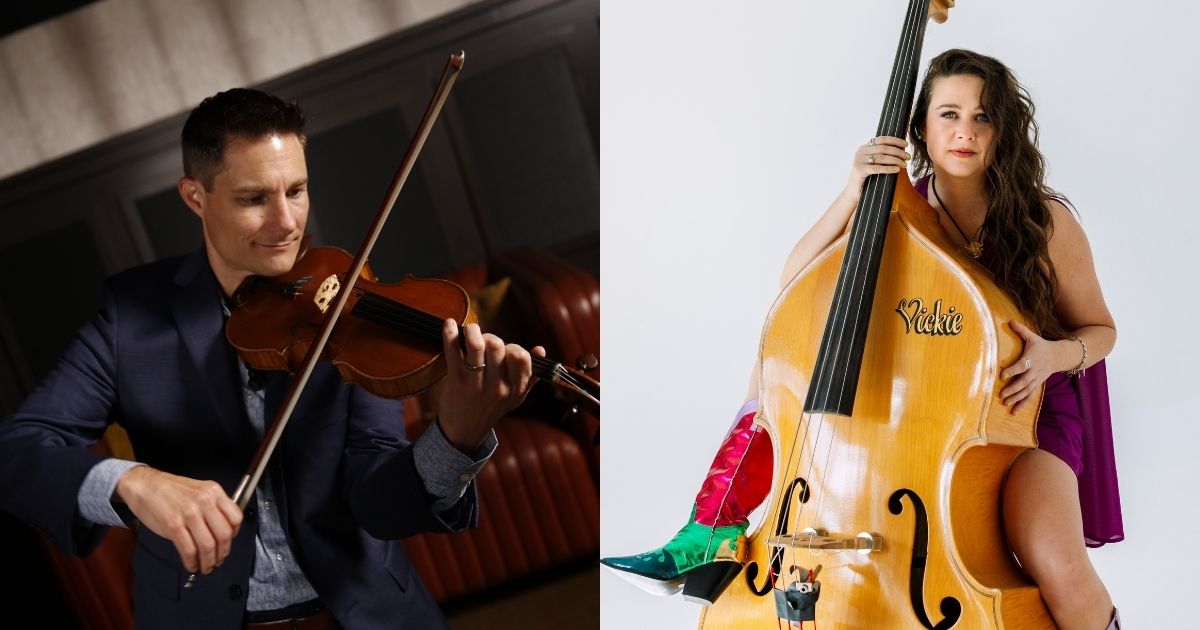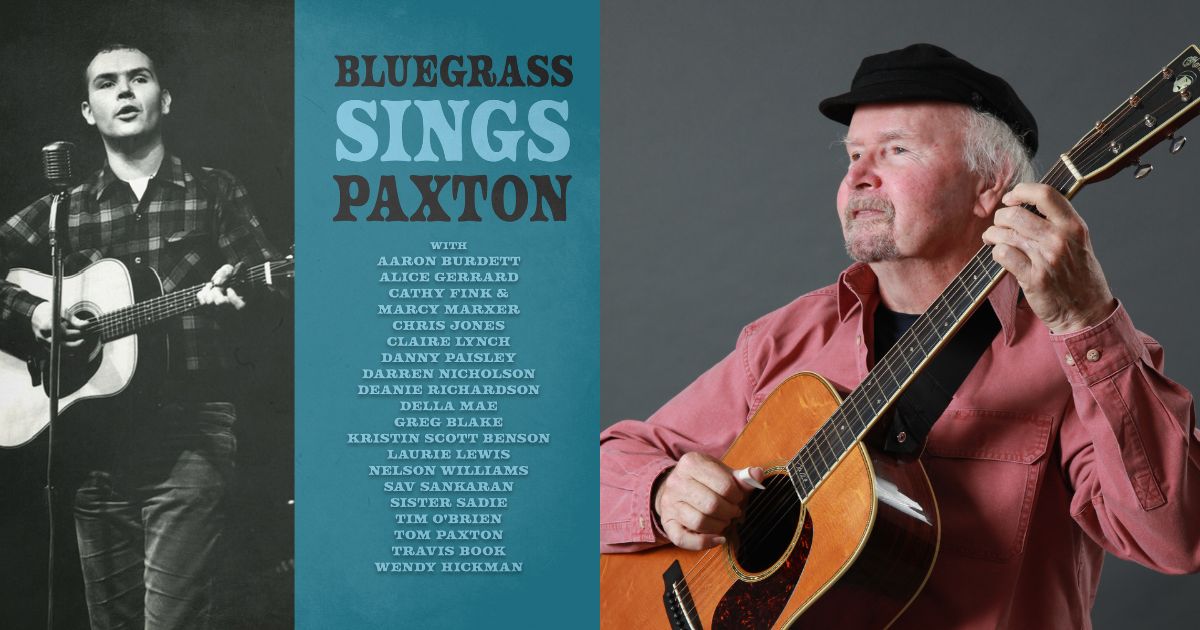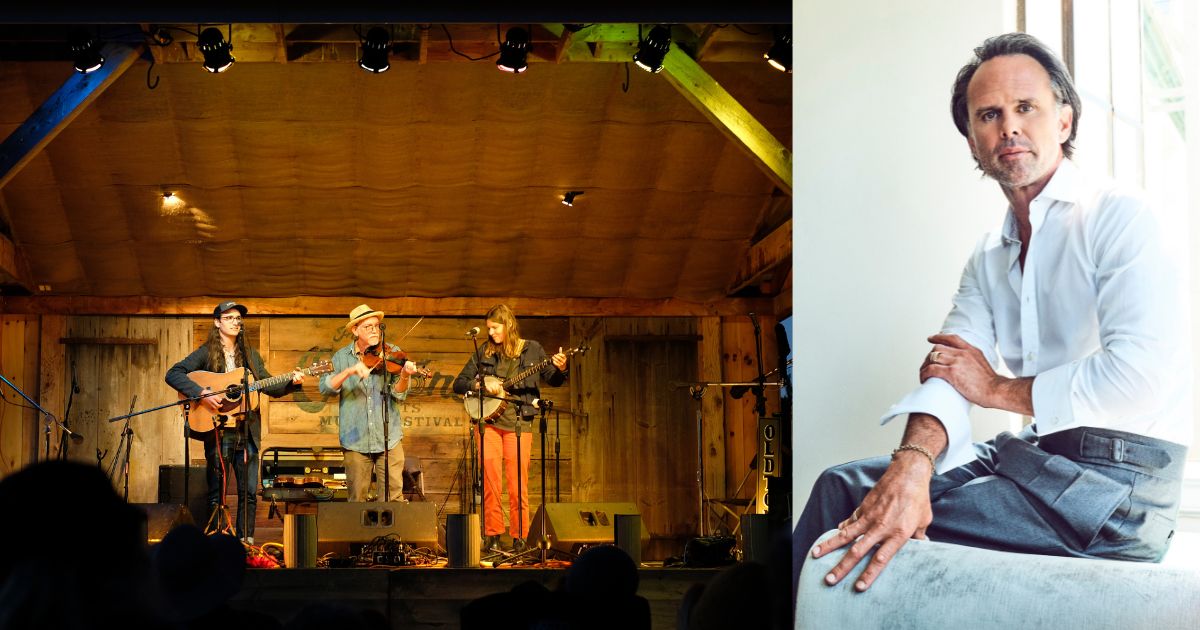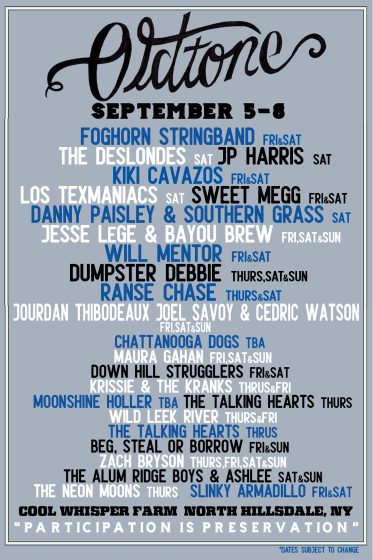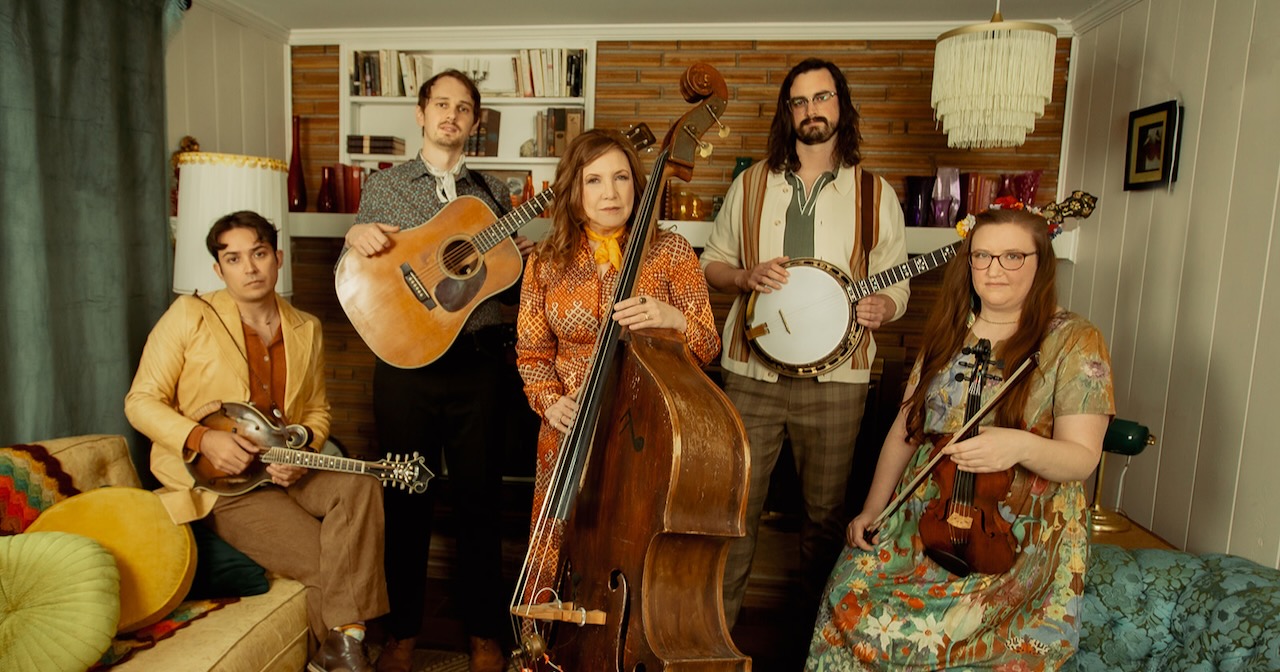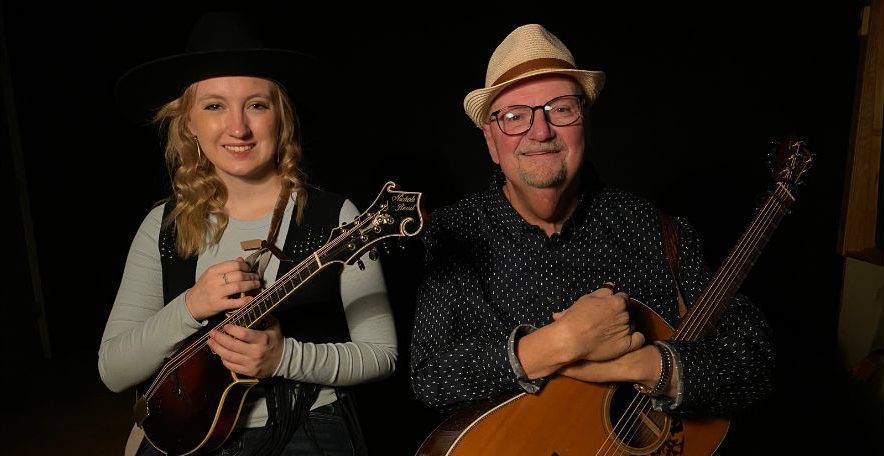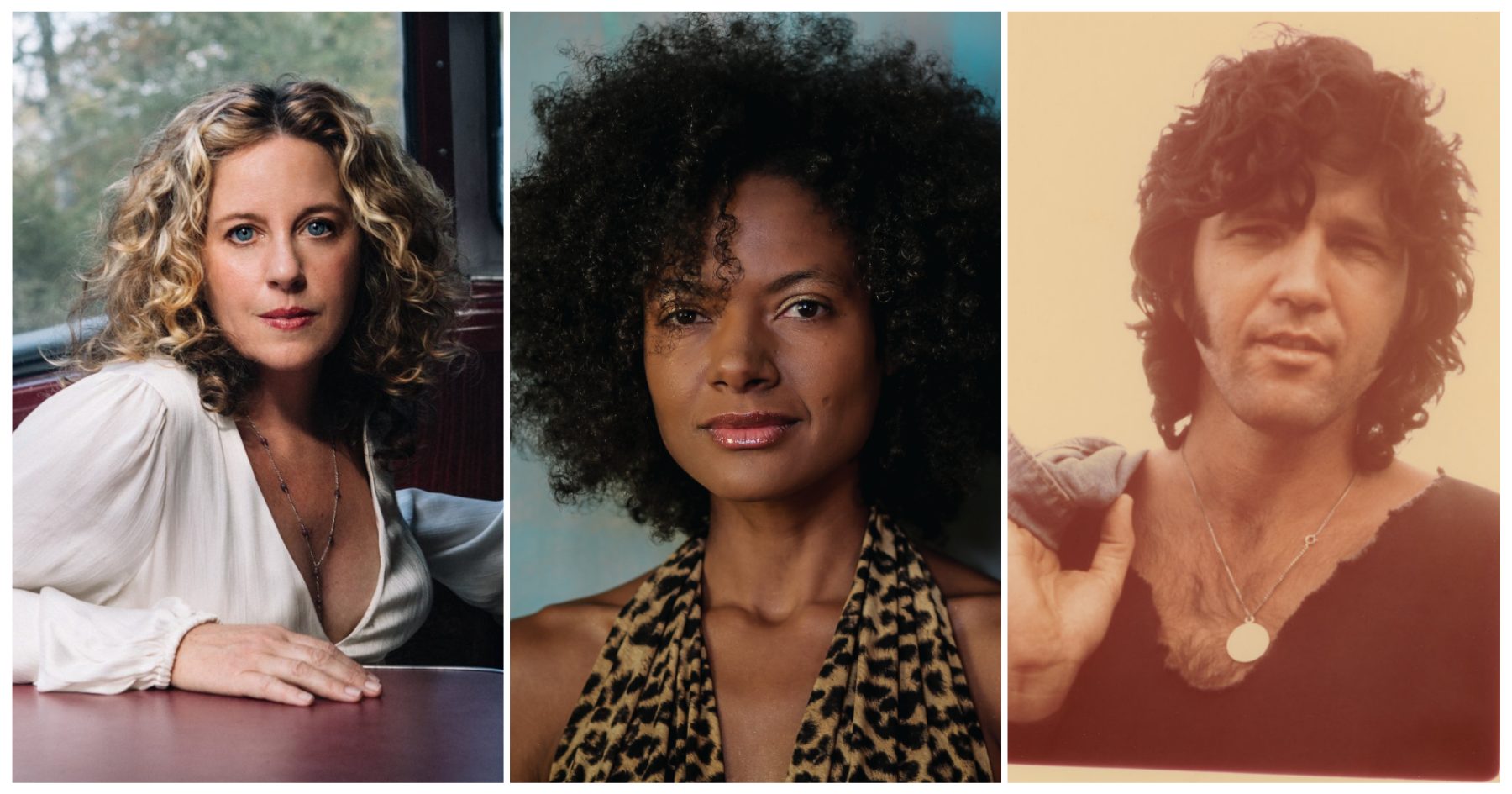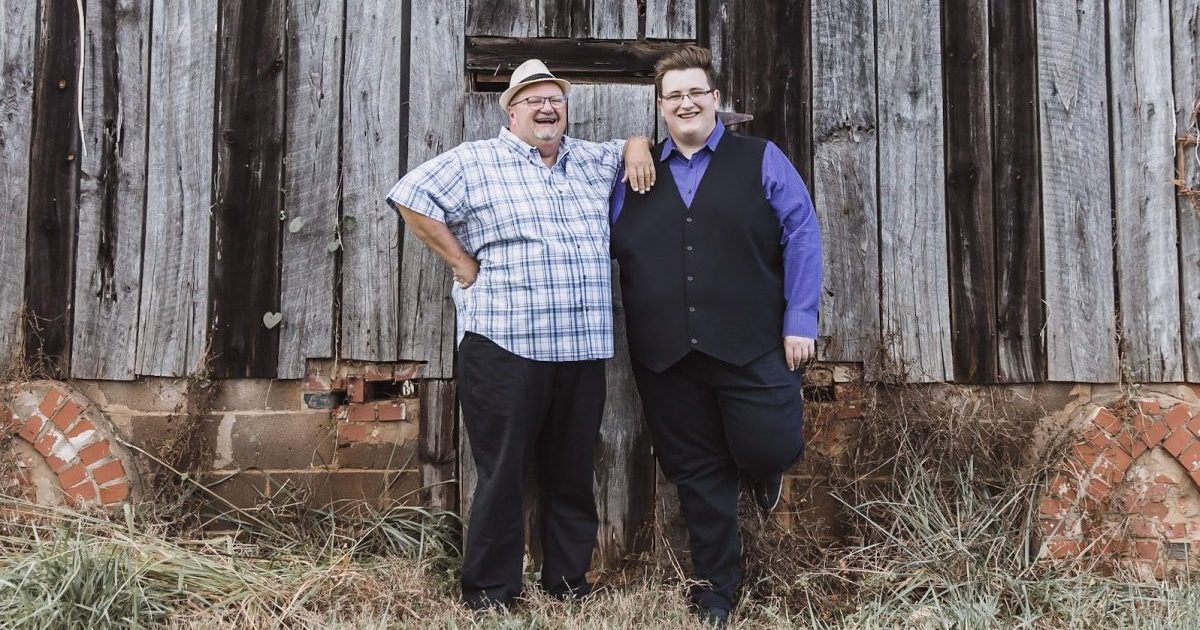You know what you need? You need a roundup of brand new roots music!
In this edition of our weekly collection, Andy Leftwich kicks us off with a frequent fiddle contest selection, “Tom and Jerry,” giving an appropriate Texas swing treatment to the classic tune. It draws from his childhood growing up performing and competing at contests. A couple of Leftwich’s labelmates on Mountain Home Music are included below, as well. North Carolina’s Unspoken Tradition call on Danny Paisley, Jason Carter, and Bronwyn Keith-Hynes to guest on “I’ll Break Out Again Tonight.” Below, the group’s bassist Sav Sankaran gives us some insight on who inspired their cover of the track and how they chose their special guests. Plus, bassist and singer-songwriter Vickie Vaughn, also on Mountain Home, releases her most vulnerable original track to date, “Mama Took Her Ring Off Yesterday.” Written with Deanie Richardson, who produced Vaughn’s upcoming solo debut, it’s a song about grief, loss, and how life always marches on.
In a similar sonic space to our bluegrass selections, Old Crow Medicine Show have pitched in for John McCutcheon’s upcoming album that pays tribute to the seminal 1925 Mountain City Fiddlers Convention to mark the year of its 100th anniversary. The album, Long Journey Home: a Century After the 1925 Mountain City Fiddlers Convention, was produced by McCutcheon and features an incredible varied roster of artists and pickers rendering songs that pay homage to the important East Tennessee gathering. OCMS perform “Whatcha Gonna Do with the Baby,” which McCutcheon has set to photos from the album’s star-studded recording sessions.
Also below you’ll hear Amanda Pascali combine cultures and sounds from Sicily and the American South on “Amuri,” a brand new song from her upcoming album, Roses and Basil. It’s a delightfully cross-genre track, with touches of cumbia, Latin folk, Texas, Sicily – of course – and beyond. You won’t want to miss new music from Queen Bonobo (AKA Maya Goldblum), either. “Waiting Tables” is the indie-alt-folk artist’s Saturn Return song, about manifesting success and chasing dreams.
It’s a lovely collection of new songs and videos and you know what we’re gonna say… You Gotta Hear This!
Andy Leftwich, “Tom and Jerry”
Artist: Andy Leftwich
Hometown: Carthage, Tennessee
Song: “Tom and Jerry”
Release Date: July 25, 2025
Label: Mountain Home Music Company
In Their Words: “This song brings back so many memories for me. I grew up competing in fiddle contests all around the southern region of the United States where I met some of the best fiddlers of our day and was introduced to the style of Texas fiddling. ‘Tom and Jerry’ is an anthem and you’ll hear it played in just about every fiddling contest and Texas jam session there is. This arrangement is a development of those experiences and pays homage to my upbringing, reminding me of where I started. It’s hard to describe the feeling you get when you play these tunes with those incredible passing chords along with the Texas swing feel. It’s just so much fun!” – Andy Leftwich
Track Credits:
Andy Leftwich – Fiddle, mandolin
Byron House – Upright bass
Cody Kilby – Acoustic guitar
Old Crow Medicine Show, “Whatcha Gonna Do with the Baby”
Artist: Old Crow Medicine Show
Hometown: Nashville, Tennessee
Song: “Whatcha Gonna Do With the Baby”
Album: Long Journey Home: a Century After the 1925 Mountain City Fiddlers Convention
Release Date: August 1, 2025 (single); September 5, 2025 (album)
Label: Appalseed
In Their Words: “Old Crow Medicine Show probably wouldn’t be a band if it weren’t for the time we spent around Johnson County, Tennessee, in the late ’90s. It was there that we learned to love the plain affairs of simple living in the hills, where country music was born. Fiddlers like JB Grayson were an early inspiration to us and the legend of the 1925 Mountain City Fiddlers Convention loomed large, even 75 years later. Now 100 years have passed since this, the first of the big national old-time music conventions, and we are mighty proud to have played a role alongside the great John McCutcheon in bringing this album to fruition.
John first approached me a year ago with the exciting news that he was embarking on a tribute to the Mountain City Fiddlers convention, the event that was so instrumental to the development of the Upper East Tennessee region’s identity as the national headwaters for hillbilly music. I immediately jumped in headfirst, bringing along Old Crow as the first act to sign up for the project. Many of the recordings we helped John make at our own Hartland Studio in East Nashville and now we are honored to finally be able to express our gratitude to Johnson County, Tennessee, an inspirational community for our band.” – Ketch Secor
“I first heard about Mountain City, Tennessee, as a teenager just beginning to play the banjo. I heard the Folkways album Old Time Music at Clarence Ashley’s and it changed the way I thought about the banjo and music as a whole. When I was finally lucky enough to get to Mountain City – doing a concert – I realized how important this little town and its heritage was. When the centenary of the 1925 fiddlers convention was rolling around, I called a bunch of my musical pals and invited them to join me in celebrating this event and, at the same time, benefit the fledgling arts center the town had started. My only request of the musicians was: Don’t make these museum pieces. Own them. I want to hear your fingerprints all over the music. And it turned out way cooler than I ever imagined.” – John McCutcheon
Amanda Pascali, “Amuri”
Artist: Amanda Pascali
Hometown: Houston, Texas
Song: “Amuri”
Album: Roses and Basil
Release Date: July 23, 2025 (single); September 12, 2025 (album)
Label: Amanda Pascali & the Family/Missing Piece Records
In Their Words: “‘Amuri’ is the first song off my new record, Roses and Basil. The song opens the album with a Leonard Cohen-esque guitar part and a stanza of ancient Sicilian verse: ‘Amuri, amuri, chi m’hai fattu fari? M’hai fattu fari ‘na granni pazzia.’ (‘My love, my love, what have you made me do? You’ve made me go mad.’) These centuries-old lines, interpreted by many artists over time, tell the story of someone so overtaken by love that they forget the way to the church. In my version, that sense of losing the path becomes a metaphor for drifting away from what once felt like absolute truth, all in the name of love.
“The song quickly shifts from that quiet opening into a vibrant cumbia rhythm, inspired by the Latin sounds I grew up with in Texas. A spaghetti western-style electric guitar, 1960s and ’70s Italian lounge piano and vibraphone, and the figure of the priest reimagined as a Southern preacher man all come together to bridge my two worlds: Sicily and the American South.
“Though ‘Amuri’ borrows its opening from the past, the song itself is entirely my own. It sets the tone for the album: anchored in tradition, but reimagined for today. How strange and beautiful that something so old can still feel so relatable.
“The album was recorded at Niles City Sound in Fort Worth, Texas. The day before we recorded this song, my producer Robert Ellis came over to the place where I was staying, with a second-hand nylon string guitar he had bought that very same day. He sat at the table with me at golden hour and as the sun shone through the windows, he played the song in a way that resembled Leonard Cohen’s ‘Master Song.’ The wheels started spinning at that moment.” – Amanda Pascali
Track Credits:
Amanda Pascali – Vocals, songwriter
Robert Ellis – Piano, vibraphone, guitar, prodcuer
Jordan Richardson – Drums, percussion
Aden Bubeck – Bass
Queen Bonobo, “Waiting Tables”
Artist: Queen Bonobo
Hometown: Sandpoint, Idaho
Song: “Waiting Tables”
Release Date: August 1, 2025
In Their Words: “‘Waiting Tables’ is my Saturn Return song. It’s about envisioning how I want my life to be and letting go of all that’s not serving me. I’ve been in the service industry since I was 14 years old and this song is my slightly sassy and soothing way of manifesting success in my music career. We all deserve safety, peace, and for our dreams to be actualized.” – Queen Bonobo
Track Credits:
Maya Goldblum – Guitar, vocals, producer
Joe Kaplow – Drums, percussion, engineer
Joel Ludford – Stand-up bass
Kyle Knadinger – Pedal steel
Neil Burns – Keys
Unspoken Tradition, “I’ll Break Out Again Tonight” featuring Danny Paisley
Artist: Unspoken Tradition
Hometown: Western North Carolina
Song: “I’ll Break Out Again Tonight” featuring Danny Paisley
Album: Resilience
Release Date: July 25, 2025
Label: Mountain Home Music Company
In Their Words: “‘I’ll Break Out Again Tonight’ was one of the first bluegrass songs I ever learned, largely inspired by the captivating rendition of the song by Danny Paisley & The Southern Grass. It has long been one of my favorite old country ballads to sing and to honor my Mid-Atlantic bluegrass roots and collaborate with Danny on this song is a dream come true. Danny is my all-time favorite bluegrass vocalist, and has been an inspiration to me since I was a child. I’m so excited to have Unspoken Tradition’s version of this classic out in the world, and even more excited to share the track with my bluegrass hero!” – Sav Sankaran
Track Credits:
Audie McGinnis – Acoustic guitar
Sav Sankaran – Bass, lead vocal, harmony vocal
Tim Gardner – Fiddle, harmony vocal
Zane McGinnis – Banjo
Ty Gilpin – Mandolin
Danny Paisley – Lead vocal, harmony vocal
Jason Carter – Fiddle
Bronwyn Keith-Hynes – Fiddle
Vickie Vaughn, “Mama Took Her Ring Off Yesterday”
Artist: Vickie Vaughn
Hometown: Nashville, Tennessee
Song: “Mama Took Her Ring Off Yesterday”
Release Date: July 25, 2025
Label: Mountain Home Music Company
In Their Words: “I was having lunch with Mama at a Mexican restaurant in Paducah, Kentucky, one day about three months after my father’s unexpected passing. In her charming and sneaky lil way, she wiggled the fingers of her left hand past the chips toward me. (She’s always had a soft/sweet way of breaking strange news to me and my brother.) I saw that her wedding ring was off, a final signal to me, my brother, and her that life goes on after tragedy. The whole situation struck me so much that I had to write this song with Deanie Richardson about the day we found out Mama took her ring off.” – Vickie Vaughn
Track Credits:
Vickie Vaughn – Upright bass, lead vocal
Cody Kilby – Guitar
Casey Campbell – Mandolin
Wes Corbett – Banjo
Dave Racine – Drums
Deanie Richardson – Fiddle
Frank Rische – Harmony vocal
Photo Credit: Andy Leftwich by Erick Anderson; Vickie Vaughn by Laura Schneider.
